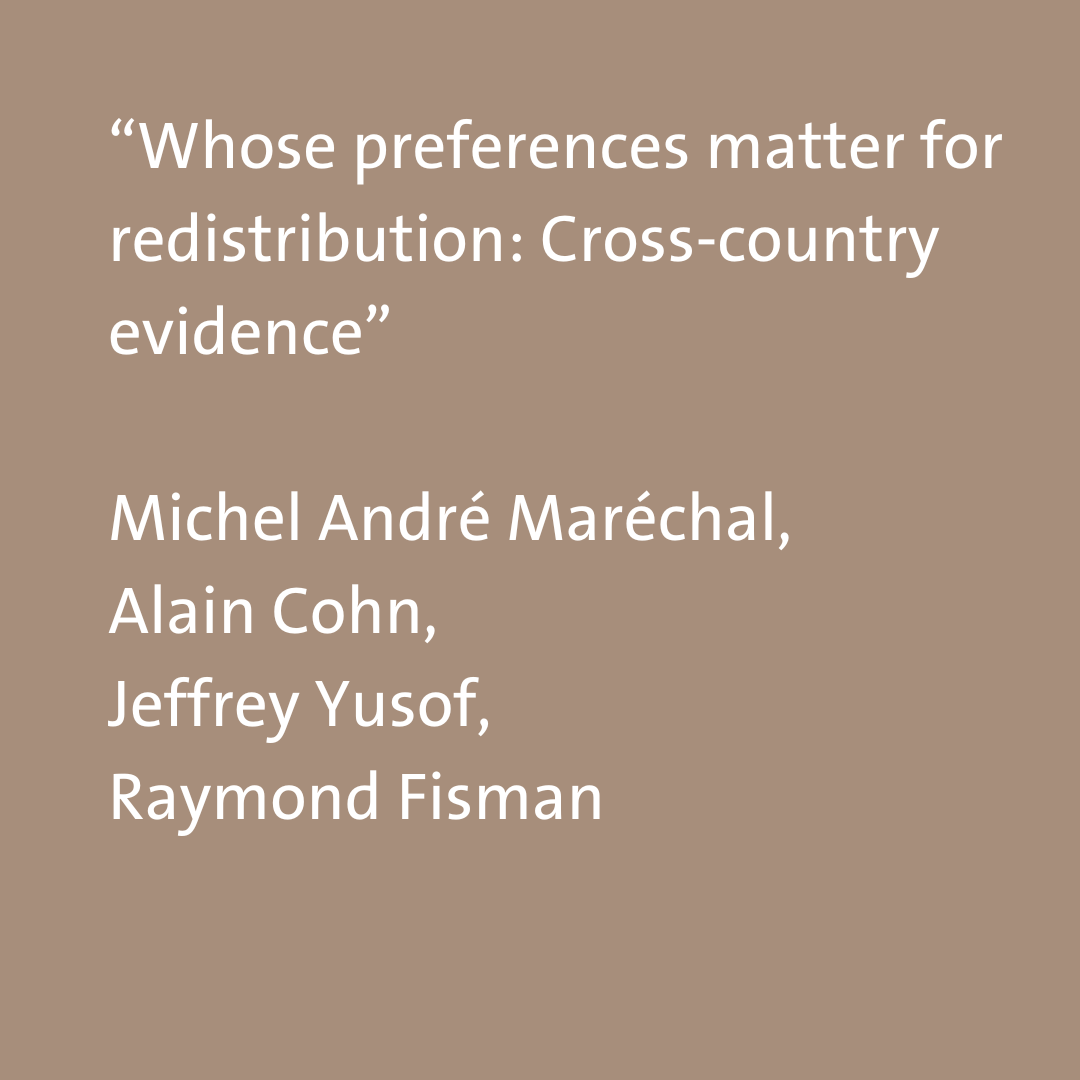Whose Preferences Matter for Redistribution: Surprising Global Insights
According to classical economic theory, government policies reflect the preferences of the median voter. However, alternative theories suggest that the preferences of the economic elite have greater impact on policy outcomes. A groundbreaking new study challenges both assumptions.

Most approaches to testing theories of government redistribution assume that voters’ preferences are determined by their economic circumstances. A research team consisting of Michel Marechal, Professor of Economics at the University of Zurich, Jeffrey Yusof, a URPP Equality Scholarship holder at the University of Zurich, Alain Cohn (University of Michigan), and Raymond Fisman (Boston University and National Bureau of Economic Research) takes a novel approach by directly evaluating whose preferences are most predictive of actual redistribution.
Using cross-sectional data from 93 countries representing roughly 87 percent of the world’s population, the authors investigate the relationship between the desired level of redistribution among citizens from different socioeconomic backgrounds and the actual extent of government redistribution.
Drawing on data from the World Values Survey, the authors measured individuals’ preferences for redistribution and constructed a preference measure for different socioeconomic status (SES) groups. To capture actual government redistribution, they compared the difference in income inequality before versus after taxes and transfers.
Surprising findings: The role of the bottom class in redistribution
Contrary to the predictions of expert economists and laypeople, the researchers found that the preferences of the bottom SES group are the most predictive of a country’s realized redistribution policies. When controlling for this measure, neither the median nor the top SES group’s preferences exhibit additional explanatory power in predicting policy outcomes. These results challenge conventional assumptions about political influence and economic policymaking.
Implications for Policy and Research
In times of rising inequality in many parts of the world, understanding how the preferences of different socioeconomic groups shape redistributive policies is essential. Since redistribution inherently involves class conflict over preferred policies, it allows researchers to examine whose preferences are reflected in policy making.
The study’s findings seem to be most consistent with explanations based on policymakers responding more to the needs and preferences of the less well-off than the middle or upper classes, at least in terms of redistribution, because poverty reduction (and thus redistribution) is the focal issue for low-income citizens. As these results challenge conventional notions of political influence, the authors hope to inspire the development of novel theories and further empirical research to better understand and explain the findings.

